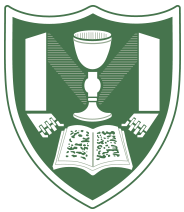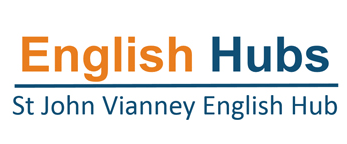
English
Intent
At St John Vianney, our English Curriculum is designed around using high-quality novels which are linked to topic themes and children’s interests. We believe that all children are entitled to a broad and balanced English curriculum, which is delivered in a way which recognises the varied needs of our children and allows each individual to maximise their learning potential; preparing them for the application of English skills across the whole curriculum and life beyond primary education. Our transition to a novel-based English curriculum has allowed us to ensure that we continue to promote a love of reading, alongside explicitly teaching Reading, Writing and Grammar objectives in line with National Curriculum objectives. Oracy is at the heart of our teaching and learning approaches and we strive to teach our children how to talk and communicate effectively and articulately. We want pupils to acquire a wide vocabulary, captured through a range of texts and modelled with high quality talk from adults in school. We believe we encourage our children, of all ages to become readers and writers, to embrace opportunities in a range of contexts with confidence and enthusiasm.
Implementation
Writing is planned using the class core text as a focus and inspiration for reading, grammar and writing skills in line with the National Curriculum. We believe that adopting a book-based curriculum across the school has a considerable effect on children’s outcomes and attainment. Year group teachers plan high quality lessons, which cover all the requirements of the National Curriculum. The sequences develop confidence and ability across the English curriculum, supporting all children to communicate, read and write for purpose and pleasure. Using high quality books in the classroom gives children the opportunity to be part of an immersive experience and provides contexts for purposeful reading and writing.
Vocabulary from the core text is used to supplement high-level teaching at word-level, the children are then encouraged to use this in their own written work across the unit. We believe that we want our children to develop an interest in an awareness of words to adequately build their vocabulary repertoires. We have classrooms which are energised through vocabulary to allow them to be inquisitive to new vocabulary and promote a desire to want to learn new words and use them in context, both in spoken language and in writing.
Each individual class teacher is responsible for the planning of writing for their class in line with the National Curriculum expectations and this is mapped accordingly to track progression. English units are taught entwining all strands of the National Curriculum, including:
- Spoken Language
- Reading
- Writing and
- Spelling, Vocabulary, Punctuation and Grammar
Teaching grammar in context involves making connections between grammatical patterns and the meaning of texts; wider contextual aspects such as genre, audience, subject, and purpose; a reader’s feelings and responses to a text; potential authorial motivations for making decisions about language choices. Teaching cycles are planned to meet the needs of the pupils within the class. Lessons sequences themselves build progressively towards an extended piece of writing. Through the English cycle, teachers will share a teacher-modelled, high-quality examples which includes all key features to allow discussions, questioning and reasoning to take place. Children will be explicitly taught how to plan, draft, edit and publish writing independently with grammar and writing foci specifically linked to the text type throughout. At St John Vianney, we ensure that children have ownership over their own learning by developing their metacognitive skills to allow them to recognise their own cognitive abilities, direct their own learning, evaluate their performance, understand what caused their successes or failures, and learn new strategies and so – throughout the writing process – pupils are constantly given opportunities to critique, mark and assess their own learning and the learning of their peers.
Spelling is taught explicitly in Year 2 to Year 6 following the Read, Write Inc spelling programme.
Impact
The impact on our children at St John Vianney Catholic Primary School is clear: progress, sustained learning, and transferrable skills. With the implementation of the English journey well established and taught thoroughly in both key stages, children are becoming more confident orators, readers, and writers. Our ‘Learning to Write’ and ‘Writing to Learn’ approach has enabled children to embed key skills across the key stages. As all aspects of English are an integral part of the curriculum, cross curricular writing standards have also improved, and skills taught in the English lesson are transferred into other subjects; this shows consolidation of skills and a deeper understanding of how and when to use specific grammar, punctuation, and grammar objectives.
We believe we teach our children to foster a love of reading and show a genuine interest for a variety of texts across different genres and formats. Similarly, we create competent and enthusiastic writers who can write for as range of purposes. We hope that as children move on from St John Vianney Catholic Primary School to further their education and learning, that their creativity, passion for English and high aspirations travel with them and continue to grow and develop as they do.
This impact is shown through pupil voice, termly assessments, teachers’ daily assessment for learning and knowledge of the children, consistent work in books across the curriculum, displays in the classrooms and corridors, parent partnership and much more.
EYFS English Map
Year 1 English Map
Year 2 English Map
Year 3 English Map
Year 4 English Map
Year 5 English Map
Year 6 English Map
Our 'Favourite Five' Texts
Our ‘Favourite Five’ books were introduced originally so that our children from Nursery to Year 2 had access to a core set of stories that both our teachers and children shared repeatedly. The aim of sharing books in this way means the children build up a breadth of loved children’s books.
These titles have built up over time and we are continuing to add to these collections to give our children a wide range of literature, and authors.
Our EYFS and KS1 'Favourite Five' Overview
Practising prosody with reading partners today in #SJV6O #SJVEnglish #SJVOracy pic.twitter.com/ZXGeH3n5wf
— St John Vianney (@sjvblackpool) May 3, 2023















